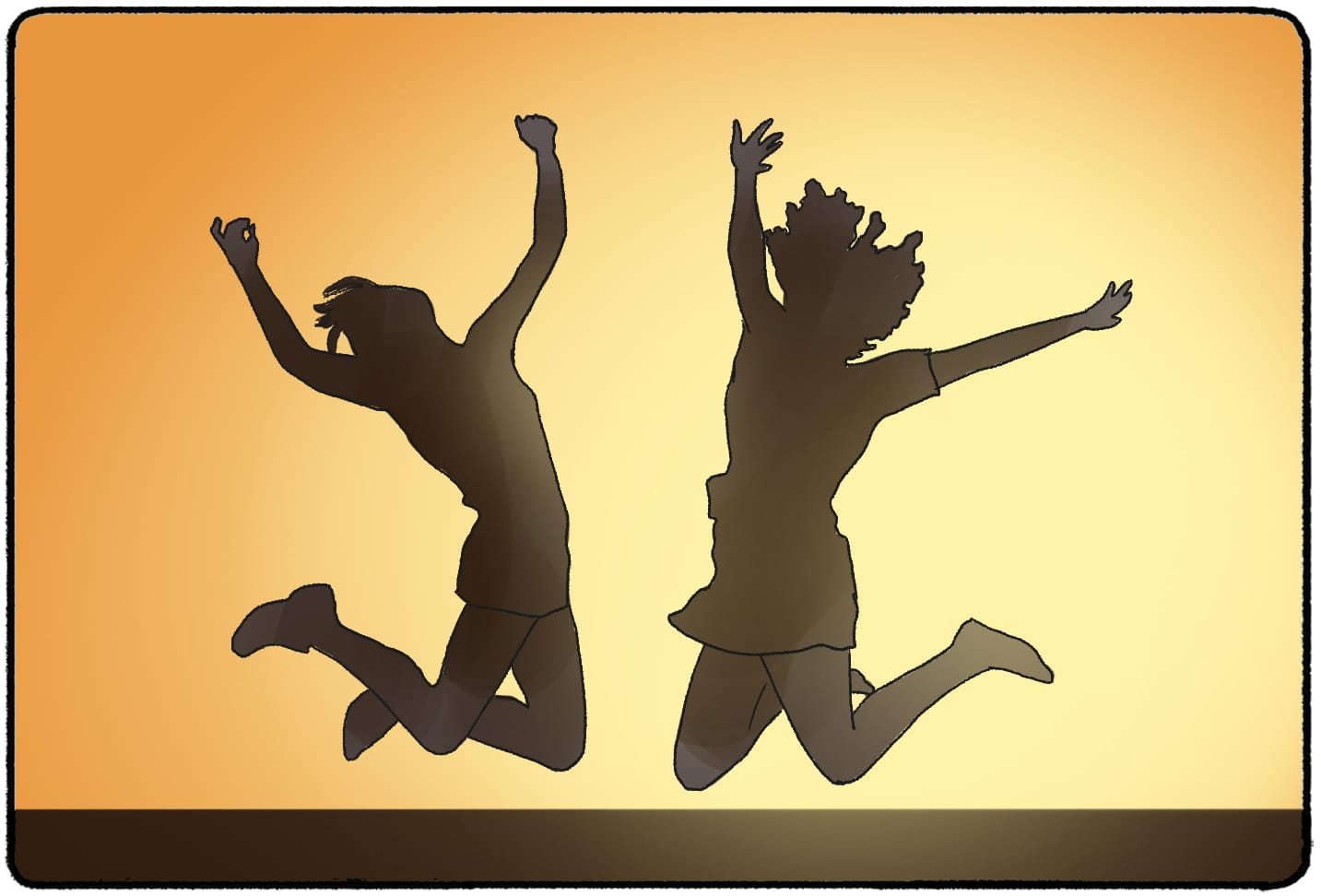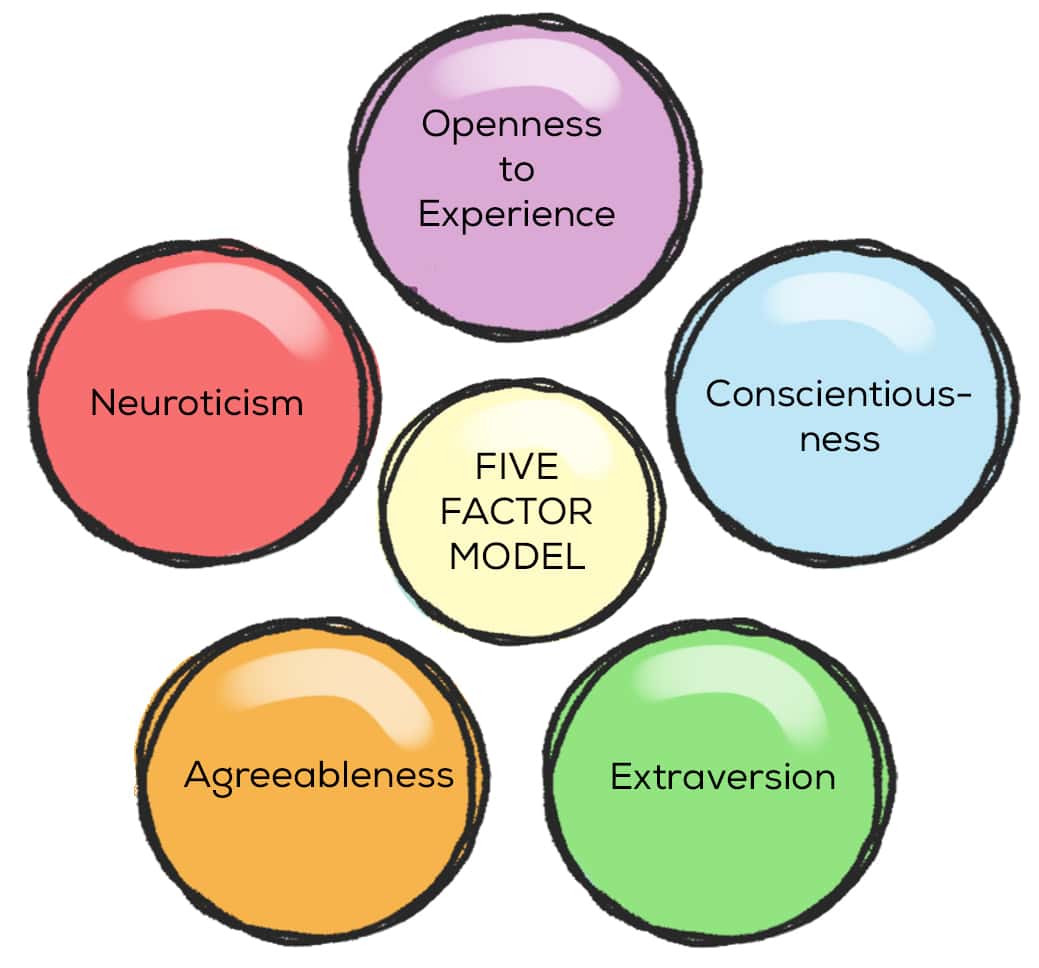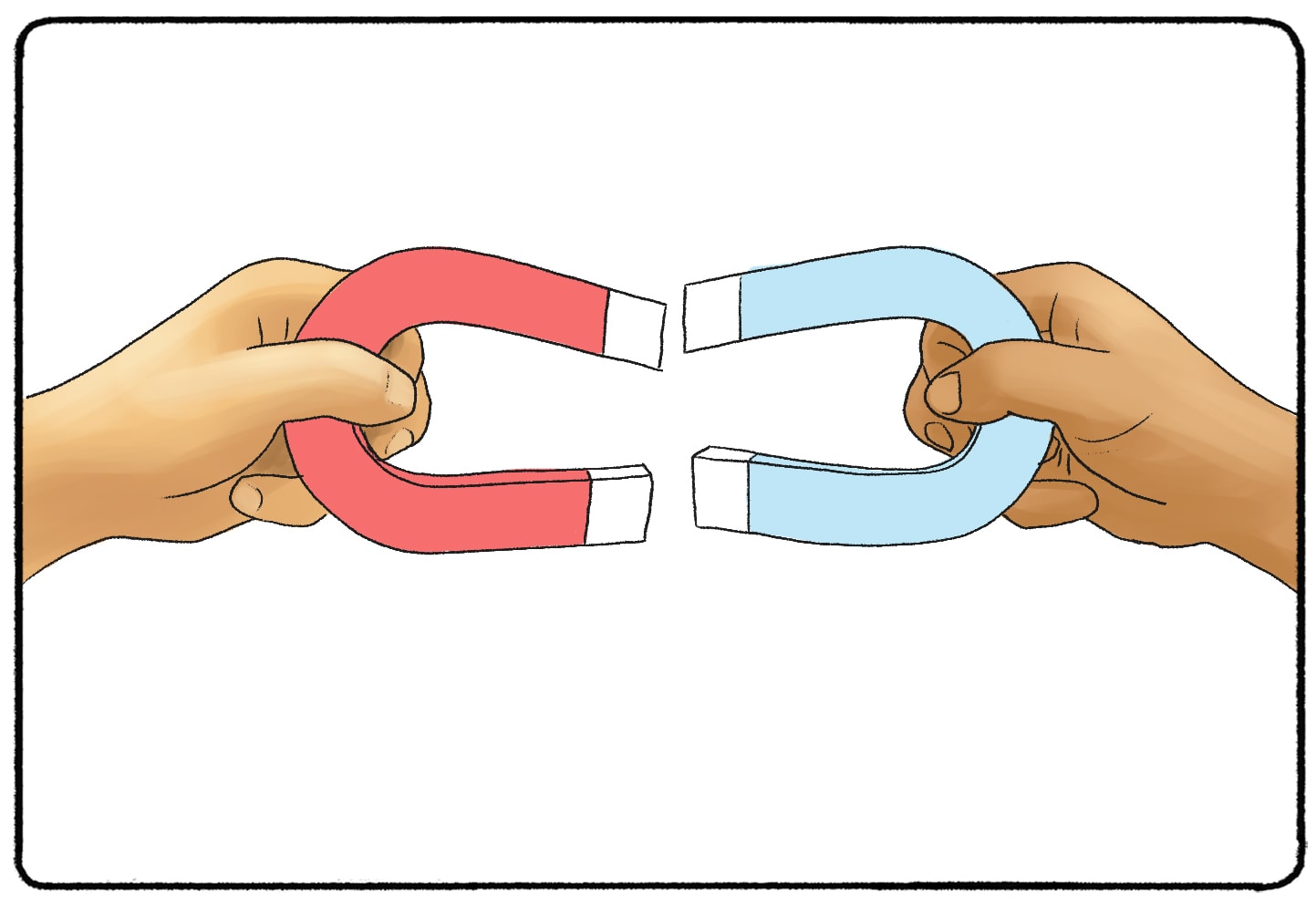Many websites and blogs support the idea that the best couples are the ones where both people are extremely similar. Hashtags such as #CoupleGoals reinforce this idea by spreading images of couples happily sharing the same activities, perfectly in sync. But do relationships work out best when they’re between people with identical interests and personalities? What personality traits make relationships easier? You may find your answers here if you have questions about personality and relationships!
How Does Personality Affect Relationships?
At the beginning of the relationship, similarities and common ground are the best ways first to spark someone’s interest in you. As time passes, you’ll find that the personality traits you admire most about your partner are often the ones opposite yours.
Whether or not two personalities mesh together well often comes down to a case-by-case basis, as many factors are going into whether or not two people will remain satisfied long-term in their relationships.
Birds of a Feather vs. Opposites Attract
Many people turn to two well-known expressions: “birds of a feather flock together” and “opposites attract”. These two contrasting expressions challenge whether or not conflicting personalities will make a relationship more or less fulfilling and long-lasting.
Let’s start by talking about “birds of a feather flock together”, which is the idea that the best couples are perfectly in sync.
Similar Personalities in Relationships
Many people agree with this side of the debate because they originally connected with their partners via their similarities. Debaters on the side of “birds of a feather” will sometimes go as far as to argue that people cannot form friendships or relationships with others who don’t hold the same values and views as them. Researchers have found that people tend to distance themselves from others who don’t adhere to their beliefs. Researchers have also found that strangers are likelier to “hit it off” when they connect on their similarities rather than showing off attributes that make them unique.

It’s also argued that like-minded people will find great satisfaction in their relationships because they have a lot of common interests and activities to share. It’s also known that people are often more attracted to others in similar situations, with many successful relationships starting after people met at work, school, or a religious ceremony.
Big Five or Five Factor Model In Relationships
When it comes to the Big 5 personality traits, one example of similarities being a good thing is that two agreeable people are usually a great match for each other. However, although two agreeable people will be a good match, two disagreeable people will struggle to make decisions together. This is an example where having similar personality traits with your partner can create problems.

To avoid these problems, two disagreeable people might be better off finding a more agreeable mate if they don’t want to struggle every time they need to come to a joint decision, which starts to bring us towards the side of “opposites attract”. Another example of this is that two dominant people might have a constant power struggle and, therefore, may be better off finding a more chill and submissive partner to complement their personality.
Different Personalities in Relationships
So, if problems sometimes arise when couples share certain personality traits, does this mean that opposite personality traits are usually more favorable?
Actually, YES! It does! Although successful couples often have similar attitudes regarding things like religion and politics, it’s been found that the most fulfilling relationships tend to exist when people have differing personalities. Decades of studies support this and have found that couples with similar Big 5 traits tend to be less satisfied with their marriages in the long run than those who don’t. One example is that couples statistically have better satisfaction in relationships where one person has a high level of conscientiousness and the other has a low level.

How Opposite Personalities Can Make a Relationship Work
When it comes to finding someone attractive in the first place, finding similarities and common ground is an effective method to get a good conversation going. However, after we get past that first conversation, the differences between us often keep the attraction going. For example, an assertive perfectionist will find a chill partner relaxing. Someone constantly planning things and structuring their life will be attracted to a spontaneous mate who can make their life more interesting. Someone constantly late for everything will be impressed by a punctual partner. These differences attract us because we subconsciously hope that some of our new partner’s styles will rub off on us. As humans, novelty intrigues us, and we’re motivated to learn from others.
Once you’ve gotten past your initial few months with your partner, your brains will stop releasing the same chemicals they used to, and you’ll feel more comfortable in your relationship. This is when “opposites attract” starts to kick in over “birds of a feather” since people often fall in love with the traits that make their partner unique. However, sharing similar interests with your partner is still good and can give the two of you more activities to share.
Attachment Styles and Personality
Another interesting way your personality affects your relationships is how your personality defines your attachment style to your partner. Studies have found that people with a higher level of neuroticism are more likely to be heavily attached to their partner and are more likely to be anxious about their partner leaving them. This also means they are more likely to attempt to avoid attachment altogether out of fear of rejection. People high in any trait other than neuroticism are much less likely to avoid attachment or be anxious about the partner leaving them after they’ve become attached.
What Personality Traits Are Most Attractive?
Before you narrow your options, you may just want to go on some dates! The following personality traits are generally considered “attractive” to the average person.
Confidence
All the experts agree. Confidence is attractive! Confidence is not just about thinking you’re the best person in the room. A person with confidence in themselves knows that they are not perfect but can use the skills they have to attract a partner, be successful, and enjoy a happy life!
How to display confidence on dating apps (and in real life!): Use confident body language in your real life and your photos! Show off your smile and present yourself as an open person. Dating app bios are a great place to show off your confidence. Let potential matches know what you bring and what you’re looking for. Keep it positive! A person who shares everything they don’t want in a partner is likely not confident they’ll find a great match.
Curiosity
Conversations should work like a ping-pong game. Both partners should have the chance to “play” and share information about themselves. If you are not naturally curious, be mindful of how often you talk and listen to your date. What can you learn about them? How can you align yourself with their interests? What about your relationship can help the other person achieve their dreams?
How to display curiosity on dating apps (and in real life!): Ask questions! (And be mindful of the answers.) If you aren’t getting many great messages from matches, pose a question on your profile. It can be quirky, silly, or spark a debate, but make it about something that interests you. Asking questions makes it easier for matches to introduce themselves and understand what being on a date with you would be like!
Kindness
When a user asked about attractive personality traits on the AskReddit subreddit, “Being polite and kind to everyone” was the top comment. This sounds simple, but it’s so true. Kindness is attractive. Being unkind is unattractive. If you are unkind to your matches, dates, or even the people around you, others will take notice. Who wants to spend the rest of their life with a mean person? Relationships are about support, even through failures and hard times. People want someone kind to offer that support.
How to display kindness on dating apps (and in real life!): If you have nothing to say, don’t say it at all! This goes for first dates and your dating profile, too. There is no need to complain about dating apps in your bio. Everyone who is reading your profile knows that dating apps can be frustrating! When you match with someone and go on a date, be kind to everyone. Being rude to waiters is a big turn-off for a lot of people. Even if you feel like you are being “honest” by saying something unkind, lead with a kind statement first.
Optimism
If you go on a date thinking you’ll have a terrible time, you’re more likely to have a terrible time. Optimism is key to getting through the toughest parts of dating. Yes, you may go on a date and not click with someone, but there are ways to be optimistic afterward. Did you learn something new? Did you check out a new restaurant you’ve always wanted to visit? Could you have possibly made a new friend or connection in business? There is always something positive to be gained from dating, even if the relationship doesn’t end in marriage.
How to display optimism on dating apps (and in real life!): Be vulnerable with what you’re looking for. Do you want to be married? Would you like children? Or do you want a partner that wants other things? This honesty is a sign of optimism. You are speaking what you want into the world, hoping you will get it! And you will!
Take My Personality Quiz!
If you’d like to see how your personality fits these ideas, I highly recommend you take my free personality quiz. If you do, you will receive a personalized list of information that will help you to understand yourself and your relationships on a whole new level.
References:
"Attachment dimensions and the big five personality traits - CiteSeerX." 18 Mar. 2005, http://citeseerx.ist.psu.edu/viewdoc/download?doi=10.1.1.460.9382&rep=rep1&type=pdf. Accessed 24 Feb. 2019.
"Birds of a feather don't always fly farthest: similarity in Big ... - NCBI - NIH." https://www.ncbi.nlm.nih.gov/pubmed/18179287. Accessed 18 Feb. 2019.
"Do Opposites Attract? | Applied Social ... - Sites at Penn State." 15 Nov. 2016, https://sites.psu.edu/aspsy/2016/11/15/do-opposites-attract/. Accessed 18 Feb. 2019.
"Power Moves: Complementarity in Dominant and ... - CiteSeerX." http://citeseerx.ist.psu.edu/viewdoc/download?doi=10.1.1.319.709&rep=rep1&type=pdf. Accessed 18 Feb. 2019.
"Predicting Relationship and Life Satisfaction From ... - ResearchGate." https://www.researchgate.net/publication/45706541_Predicting_Relationship_and_Life_Satisfaction_From_Personality_in_Nationally_Representative_Samples_From_Three_Countries_The_Relative_Importance_of_Actor_Partner_and_Similarity_Effects. Accessed 18 Feb. 2019.
"Relationships: opposites do not attract, scientists prove - Telegraph." 23 Feb. 2016, https://www.telegraph.co.uk/news/science/science-news/12170295/Relationships-opposites-do-not-attract-scientists-prove.html. Accessed 18 Feb. 2019.
"When you've got nothing in common: Relationship advice | Glamour UK." 23 Feb. 2017, https://www.glamourmagazine.co.uk/article/nothing-in-common. Accessed 25 Feb. 2019.
What Makes You Click: An Empirical Analysis of Online ... - CiteSeerX." http://citeseerx.ist.psu.edu/viewdoc/download?doi=10.1.1.61.4010&rep=rep1&type=pdf. Accessed 18 Feb. 2019.
